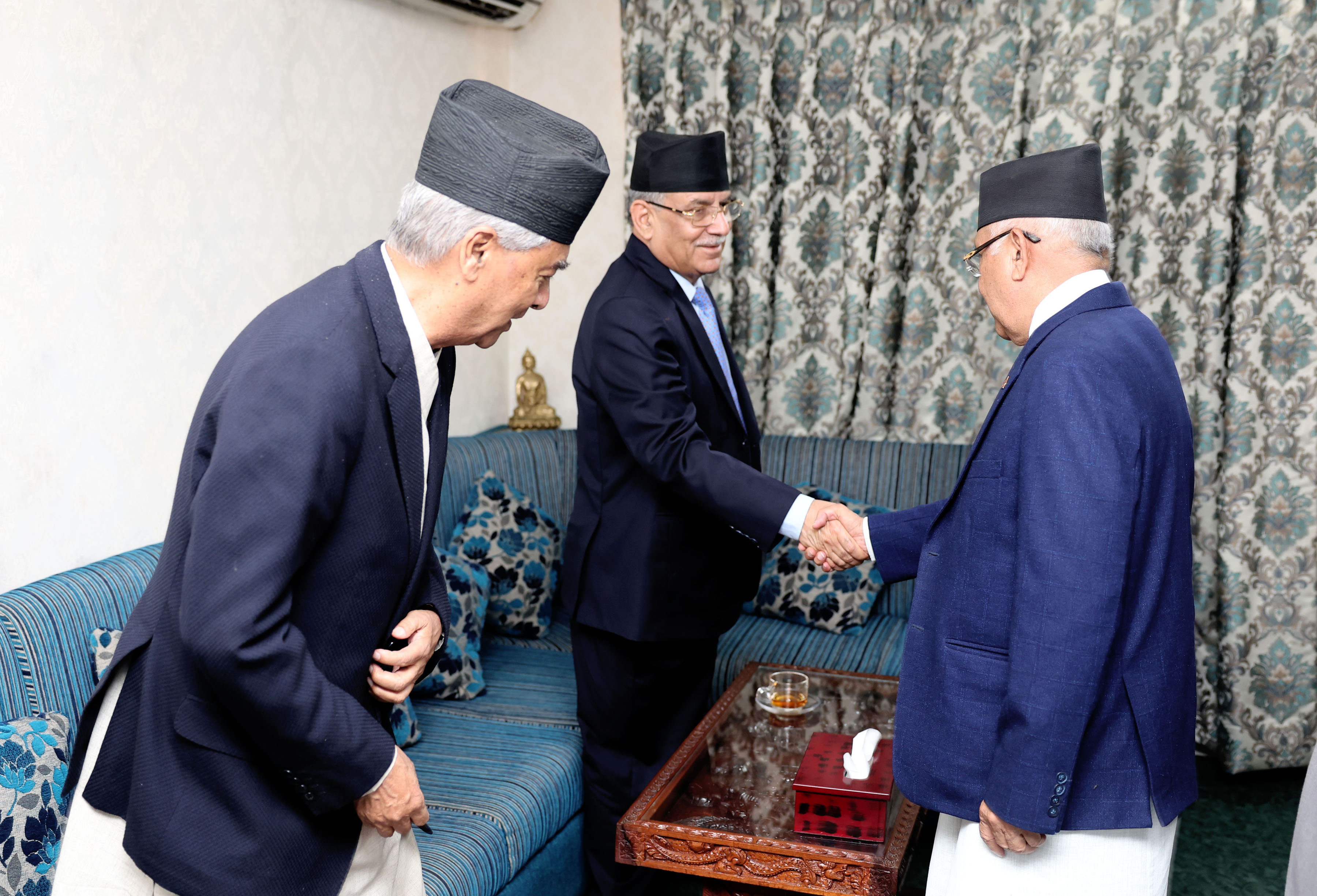Politics
Oli objects to PM on fast-track passage of transitional justice bill
Ruling allies Dahal and Deuba meet opposition leader at Speaker’s initiative, first time since the change in alliance.
Tika R Pradhan
The main opposition CPN-UML has taken a stance against endorsing the bill to amend the transitional justice law through a fast-track process in Parliament, even as the ruling coalition wants to pass it without any further delay.
Prime Minister Pushpa Kamal Dahal and Sher Bahadur Deuba, president of Nepali Congress, the largest parliamentary party, held talks with the leader of the opposition KP Sharma Oli at the Speaker’s office in Singha Durbar on Saturday.
This is the first meeting of the prime minister with the UML leader after Dahal ditched the coalition with the UML and embraced the Congress to shape a new alliance, even though he had become the prime minister with Oli’s support.
Speaker Devraj Ghimire convened the meeting of the three party leaders and facilitated the discussion.
“We had a preliminary discussion on ways to make the Parliament effective,” Oli told reporters after the meeting. “We must take [the TRC bill] to the parliamentary committee in one way or the other.”
The ruling parties have been cajoling the opposition parties to pass the bills related to transitional justice via a fast-track process without sending it to the thematic parliamentary committee, but the opposition parties are demanding that the bill must be sent to the related committee and discussed thoroughly there.
The federal parliament is yet to form its thematic committees. There will be a total of 16 committees, including 10 in the House of Representatives, four in the National Assembly and two joint panels that include the parliamentary hearing committee.
Stressing the importance of the transitional justice amendment bill for concluding the remaining tasks of the peace process, Prime Minister Dahal said the three leaders agreed to conclude the TRC bill endorsement process after a discussion with experts on Tuesday morning.

“Basically, we discussed finalising the bills related to the TRC and Constitutional Council at the earliest. But there are technical and legal aspects as well,” Dahal told reporters after the meeting. “We have agreed to resolve all issues by holding discussions with friends who have worked in this sector, besides also consulting the constitutional and legal experts.”
Dahal said he had requested Oli to finalise the bills through a fast-track process. “We want to fast-track the bills in the full House, but the opposition wants to send them to the parliamentary committee,” Dahal said.
But there is also discussion among the leaders, according to Dahal, to seek a middle path for a quick endorsement of the bill to amend the TRC Act.
Despite his position against the ruling parties’ proposal, UML chair Oli termed the discussions with the prime minister and Congress President Deuba as positive.
“We had a positive discussion on the activities of Parliament, and on making the House proceedings effective, besides resolving some of the pending issues,” Oli said.
He also told reporters that they had discussed ways to take forward the bills related to conflict-era disappearances and forming the parliamentary committees.
“This is just a preliminary discussion and it will continue,” Oli said.
In the Common Minimum Programme unveiled on Thursday, the ruling coalition has pledged to take the ongoing peace process to its logical conclusion within two years.
It’s been 17 years since the signing of the Comprehensive Peace Accord between Dahal, the leader of then warring Maoists, and then-prime minister Girija Prasad Koirala.




 18.12°C Kathmandu
18.12°C Kathmandu















